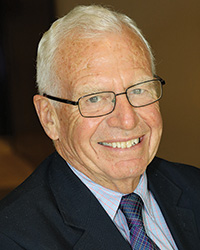Current events: Complicated, not confusing - David Kirk

The Federal Open Markets Committee (FOMC) raised interbank guidance rate. Now at 4.5% after six rate increases, four of which were big increases, with puffy clouds in the skies, rippling in the ponds and whispering headwinds. Bumping up credit crunching, dollar strengthening with currency buoyancy, wages and employment upwardly gaining, job opportunities stable upward, unemployment persistently low, expansionary trajectory and inflationary doldrums. Dashboard changing, beeping louder, adjustments and revisions echoing all benchmarking. Expansionary recession, recovering collapse. Commercial real estate markets anticipate the ongoing uncertainty of rates.
Climate Change Conference in Egypt will focus on practical and urgent spending toward adaptation in response to climate change. The 2022 United Nations Climate Change Conference Preventive, opens in Sharm El Sheikh, for November 6-18. Commonly known as the Conference of the Parties of the UNFCCC, or COP27, is the 27th conference. The agenda will focus on funding the protective improvements to essential energy and transpiration networks. Centers of population and agriculture and other food sources. Rethinking where and how we live and work. How much and how we fund the construction, and prioritizing the projects. The long list of emergency attention to natural calamities are shovel ready. $100 billion a decade.
Dialogue with Fed Chair Powell and the FOMC include more moderate future increases, time for current rates levels to have impact on inflation. Ultimately, rates will need to move higher to dampen demand, prices.
Learning that words are placeholders and shorthand for a galaxy of macro and micro conditions and trends and outlook. Calibrating the future rate action and it’s impact is necessary to plan and spend, hardly a fool’s exercise. Because the lexicon and metaphors are morphing in meaning over time and place, the pronounced path is uncertain, unknown. Higher risk.
Moderation could well reduce risk. A pause in the pace and scale could predictably add to stability in the markets. The direct measurable impact on credit markets and housing production is destabilizing The shifting demand and supply and ability and agility to be responsive, resilient, is exacerbated by ongoing supply chain and labor markets. More lights for the dashboard.
Without trying to reconcile pandemics and war with the economy, the stormy stuff, both fog and wind, otherwise flummoxes the players, the decision and market makers and the stewards of the built environment. After all, commercial real property is an economic derivative. And provides a predictability in the these otherwise turbulent markets, capital included.
Twitter, now owned and led by Elon Musk, reduced employment by 7,500 persons November 4. The nation gained jobs in October, 4.9 million in the first three quarters of 2022. Low unemployment if 3.5% has held, subject to revision.
Leisure and hospitality dominated the job gains. Too much job growth. Natural job growth ok, the economy needs cooling. Wage gains too much, trailing relative gains in goods and services. Inflation pressure on goods and services. Layoffs are still moderate and employers are reportedly still cautious about maintaining the labor force for ongoing resilience and expansion.
So, as stewards of the built environment, we must be at the table. Remembering that infrastructure spending has started. And commercial property sector is integral to any infrastructure programs and collaboration and the call to action is loud and clear. Even if this effort and enterprise is inflationary. Tackling the essential labor and supply chain. Complicated, not confusing.
Happy Thanksgiving!
David Kirk is founder, chief executive officer of Kirk & Co., Boston, Mass.
Preservation of Affordable Housing secures $23.5 million in financing from Rockland Trust and Citizens Bank

Examples of investors who used Kay Properties for legacy and estate planning purposes for rental property/portfolios - by Dwight Kay










